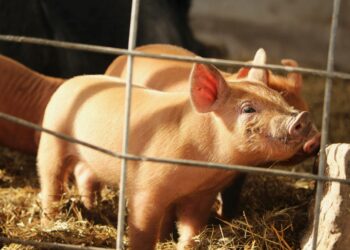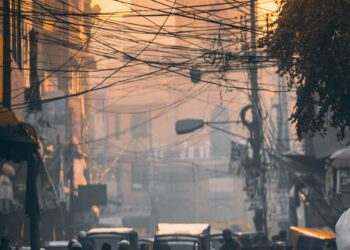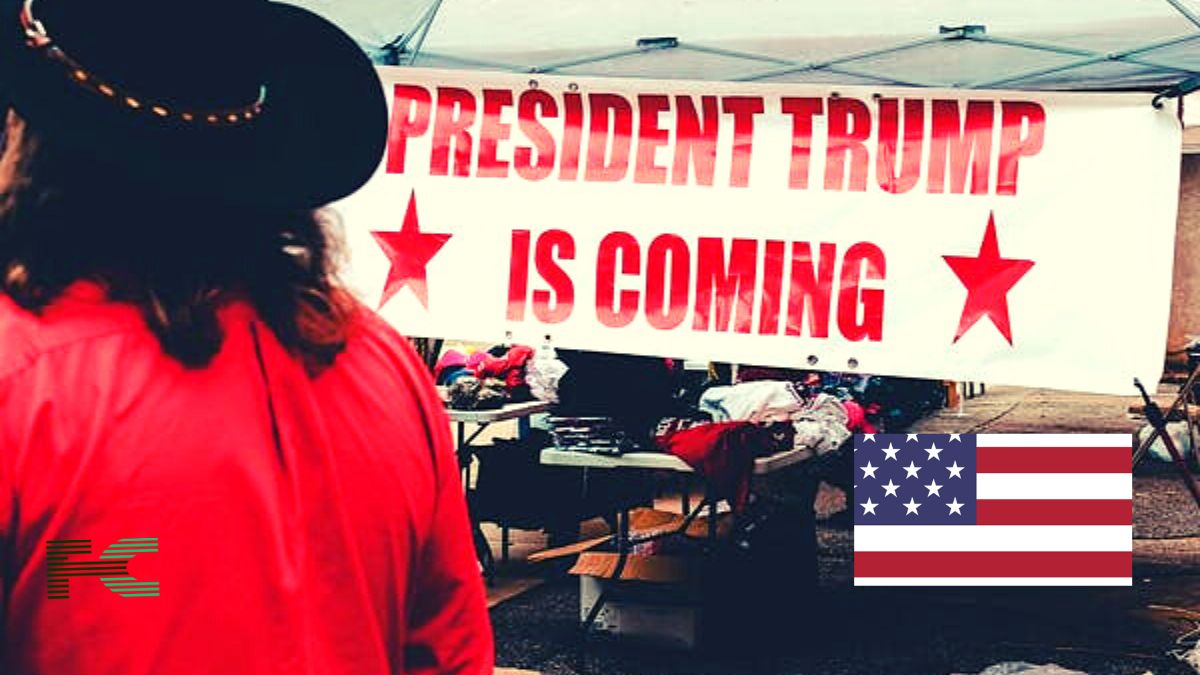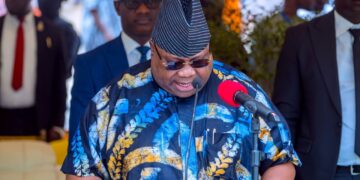The stage is set for a contentious presidential election in Gabon next month, with 19 candidates, including incumbent President Ali Bongo and several former ministers, officially validated, according to the election commission’s announcement.
According to Michel Stephane Bonda, the president of the Gabonese Elections Center, 27 applications were received by the nomination filing deadline, out of which 19 candidates were approved.
In 2009, Bongo assumed power amid a contentious election following his father Omar Bongo’s demise and was re-elected in 2016. Both of Bongo’s election victories were challenged by the opposition, who alleged fraudulent practices.
Now seeking a third term, Bongo has been in power for nearly 14 years, and it is worth noting that Gabon has no constitutional term limits.
Among the candidates vying for the presidency, former Mines Minister Alexandre Barro Chambrier is considered Bongo’s primary competitor. The Paris-born economist is participating in the presidential election for the first time.
Other contenders include Pierre-Claver Maganga Moussavou, the founder and president of the Social Democratic Party, and Raymond Ndong Sima, a former prime minister.
Bongo’s Candidacy Sparks Opposition Controversy
Despite opposition claims that he is unfit for the presidency due to his 2018 stroke and subsequent medical treatment in Morocco, President Ali Bongo’s candidacy has been approved. The opposition has consistently challenged Bongo’s legitimacy, accusing him of winning both the 2009 and 2016 elections fraudulently.
Gabon’s System of Government: A Controversial Framework
Gabon operates as a republic, with the president serving as both head of state and head of government, granting them considerable power. The executive branch, headed by the president or prime minister, exercises authority over the government, while the legislative branch consists of two chambers of parliament. The judiciary, although technically independent, has faced criticism for its close ties to the president, raising concerns about the separation of powers.
A Dynasty in Power: Should Gabon Consider a Monarchical System?
The Bongo family’s uninterrupted rule, dating back to 1967, has raised questions about the possibility of transitioning to a monarchical system of government. President Ali Bongo’s announcement of running for a third term reignites discussions about the concentration of power within one family and the need for broader political representation.
During the height of the Cold War, from 1960 to 1989, Gabon’s fledgling government skillfully leveraged its loyalty to France and the Western powers to maintain a firm grip on one-man, one-party authoritarian rule under the late Omar Bongo. Despite this authoritative regime, the country’s unwavering commitment to free market capitalism allowed for the creation of a few national enterprises that did not hinder market liberalization significantly. However, as the Cold War drew to a close in 1989, pressure mounted on Omar Bongo to embrace multiparty democracy.
Using cunning statecraft and impressive political prowess, Omar Bongo orchestrated a national convention and successfully crafted a new liberal constitution in 1991, with the cooperation of some opposition leaders, introducing various democratic reforms to the presidency and electoral system. Nonetheless, despite these efforts, Omar Bongo and his party managed to retain their hold on power.
In 2009, the death of Omar Bongo highlighted the immense extent of his political influence, as he had firmly established his hold on power to the point where he arranged for the presidency to be transferred to his son, Ali Bongo, even after his passing.
Controversial Elections and Allegations of Rigging
Amid controversy, Omar Bongo faced criticism for reportedly squandering a significant portion of Gabon’s abundant oil wealth while maintaining close ties with France under the “Françafrique” system. His successor, Ali Bongo, initially attempted to distance himself from his father’s actions, but his moral standing was undermined during the last presidential vote.
The 2016 election, in which Ali Bongo emerged victorious, was marred by allegations of rigging and violence allegedly perpetrated by the country’s security forces. The official results showed Ali Bongo securing 49.8% of the vote, while his rival Jean Ping received 48.23%. However, controversy arose when the electoral commission declared an unprecedented 99.98% voter turnout in Bongo’s home region, Haut-Ogooué, compared to 59% elsewhere, with an overwhelming 95% of votes in favor of the president.
The opposition accused the Republican Guard of orchestrating violence, further deepening the divide between political factions.
Opposition Struggles to Unite Against Bongo
Despite President Bongo’s contested leadership, the opposition has faced challenges in uniting under a single candidate for the presidential election. With around 19 candidates vying for the top position, the fragmented opposition may struggle to pose a formidable challenge to the Bongo dynasty’s continued rule.
In 2019, Gabon’s capital, Libreville, witnessed a dramatic and unsettling event as shots rang out and tanks patrolled the streets during an attempted coup by military officers. The coup was announced on state radio by the chief military rebel, who was later arrested on the same Monday.
During the coup attempt, two of the rebels’ accomplices were killed when security forces stormed their location. The remaining two were taken into state custody, according to a statement from the presidency.
Notably, President Ali Bongo was out of the country at the time, receiving medical treatment in Morocco following a stroke. Some military officers saw this as an opportunity to challenge his authority and seize power. The incident raises questions about the stability of the nation and the extent of the Bongo family’s control over the country’s leadership.
The situation has sparked controversial discussions about the concentration of power within the Bongo family, with critics arguing that such prolonged familial rule undermines democratic principles and prevents other capable leaders from taking charge. Some have even branded Ali Bongo as selfish for seeking to hold on to power despite health challenges.
However, it is essential to acknowledge that the opposition also faces its own challenges in attempting to upend the established political order. The difficulty in effecting constitutional changes to limit the Bongo family’s influence has further fueled tensions in Gabon’s political landscape.
Comparisons have been drawn to Nigeria, where there have been past attempts to change the constitution to extend a president’s term, generating widespread opposition. Despite leaving office, former President Olusegun Obasanjo has remained politically active, albeit with diminished influence, exemplifying the power dynamics in Nigeria’s political scene.
Gabon’s Economic Woes and Unemployment Crisis
Gabon, an oil-producing nation, has experienced economic hardships, particularly after the global oil price slump in 2015. The overreliance on oil revenues has led to economic diversification efforts, but progress has been hindered by funding shortages and halted projects.
Challenges to Democracy and the Call for Change
The situation in Gabon raises concerns about democratic principles and the need for fair and inclusive governance. With the Bongo family’s lengthy grip on power, opposition forces and civil society activists may intensify calls for constitutional reforms and term limits to ensure a more level playing field for future leadership.
As the campaign for the presidential election commences on August 11, all eyes are on Gabon to see how this controversial race unfolds, and whether the country’s citizens will seek to reshape their political landscape for a more inclusive and diverse future.














